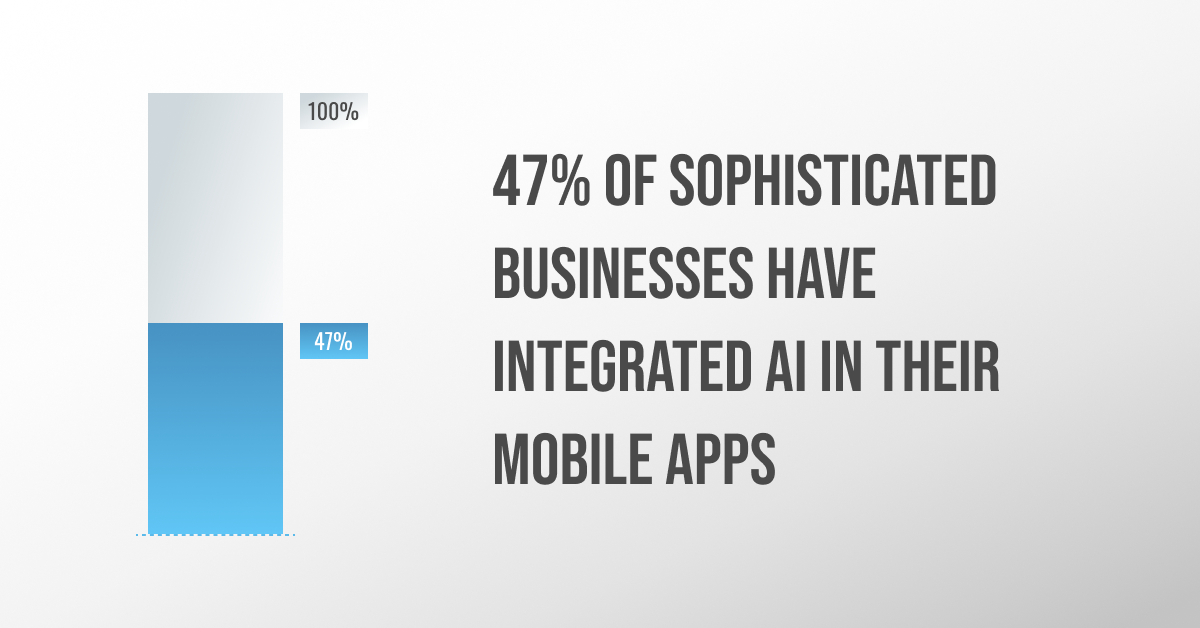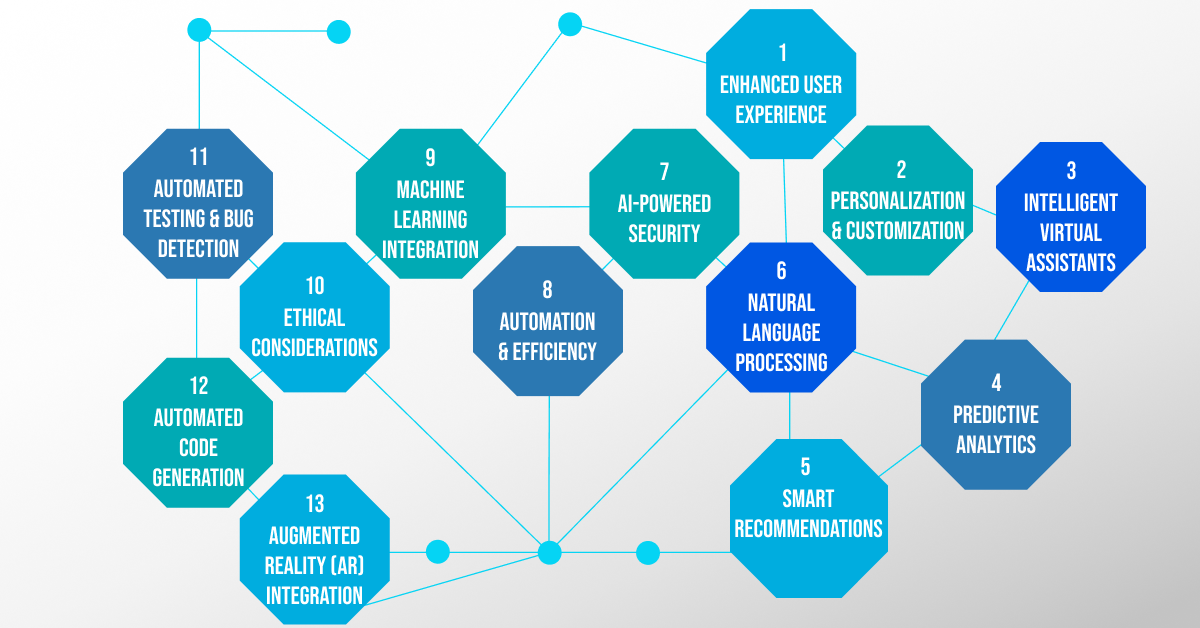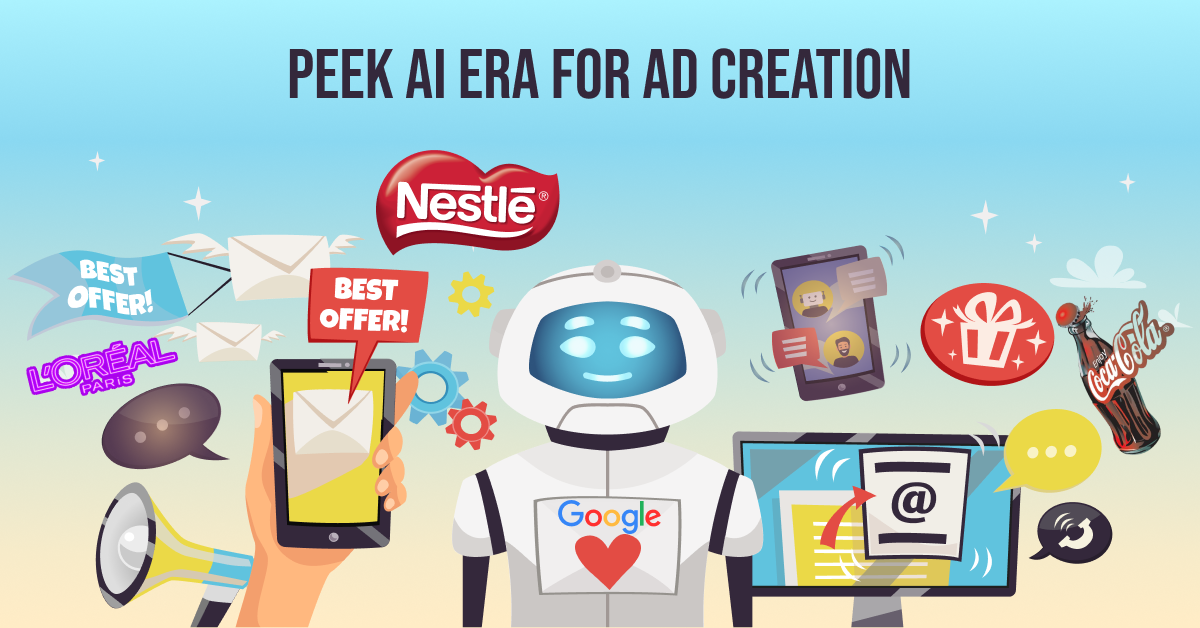
THE INFLUENCE OF AI ON THE FUTURE OF MOBILE APP DEVELOPMENT
-
By Amardeep Singh Sandhu
-
15th July 2023
Artificial Intelligence has changed the way mobile app development works. Thanks to the infinite possibilities for developers and business organizations. According to recent statistics, 47% of high-level businesses have incorporated AI into their mobile apps to implement user personalization. In short, AI has unlocked novel potential for developers to advance their app development practices.

The future of mobile app development holds immense potential as advancements in artificial intelligence (AI) continue to shape the industry. AI-powered technologies such as machine learning, natural language processing, and predictive analytics are revolutionizing the way mobile apps are designed, developed, and experienced. With AI, mobile apps can offer enhanced user experiences through personalized recommendations, intuitive interfaces, and seamless interactions.
Understanding the Power of AI in Mobile Apps:
– The power of AI lies in its ability to analyze user behavior, preferences, and data to understand individual needs, resulting in higher user engagement, satisfaction, and retention. Personalization and customization are key features enabled by AI, allowing apps to deliver tailored content, product recommendations, and user interfaces that cater to individual preferences.
– Moreover, intelligent virtual assistants, powered by AI, transform the way users interact with mobile apps, providing real-time assistance and guiding users through functionalities. AI-driven predictive analytics anticipates user behavior and needs, empowering apps to offer personalized suggestions and optimize user engagement.
– With AI, mobile apps can provide smart recommendations, leverage natural language processing for seamless interactions, enhance security, automate development processes, integrate machine learning for continuous improvement, and address ethical considerations to ensure responsible AI usage. The future of mobile app development is set to be shaped by AI, offering exciting possibilities for enhanced user experiences and innovative solutions.
How AI is Transforming Mobile App Development

Artificial Intelligence (AI) is revolutionizing mobile app development. With AI, apps can offer personalized experiences, intelligent virtual assistants, predictive analytics, and smart recommendations. AI automates processes, enhances security, and integrates machine learning for continuous improvement. Ethical considerations ensure responsible AI usage. Here is how it will bring changes.
- Enhanced User Experience: The visual impact of AI in mobile app development is through some AI-powered technologies such as machine learning and natural language processing. These apps tend to offer personalized recommendations, intuitive interfaces, and seamless interactions. To be more precise, AI analyzes user behavior, preferences, and data to understand individual needs and tailor the app experience accordingly. Therefore, it leads to higher user engagement, satisfaction, and ultimately, retention.
- Personalization and Customization: AI leverages user data and preferences to enable personalization and customization in mobile apps. With its algorithms, apps can deliver personalized content, product recommendations, and user interfaces that cater to individual preferences. This level of personalization enhances user satisfaction, fosters a deeper connection with the app, and increases user loyalty. Because, the customization options allow users to modify app settings, layouts, and features to suit their preferences, ensuring a personalized experience tailored to their needs.
- Intelligent Virtual Assistants: Intelligent virtual assistants powered by AI, such as chatbots, voice assistants, and virtual customer service agents, revolutionize the way users interact with mobile apps. These virtual assistants provide real-time assistance, answer queries, perform tasks, and guide users through app functionalities. They utilize natural language processing and machine learning to understand user input and provide accurate and contextually relevant responses. Intelligent virtual assistants enhance user convenience, streamline app interactions, and provide a more efficient and satisfying user experience.
- Predictive Analytics: AI-driven predictive analytics enables mobile apps to anticipate user behavior, needs, and preferences. By analyzing historical user data, AI algorithms can make accurate predictions and recommendations. Therefore, it empowers apps to offer personalized suggestions, improve content targeting, and optimize user engagement. Predictive analytics also helps app developers make data-driven decisions, refine marketing strategies, and optimize app performance based on user insights.
- Smart Recommendations: AI-powered smart recommendations play a crucial role in guiding users toward relevant content, products, and services within mobile apps. Moreover, it works by analyzing user preferences, browsing history, and contextual information, AI algorithms can offer personalized recommendations tailored to each user’s interests. Hence, it enhances user engagement, encourages exploration within the app, and increases the chances of conversions. Smart recommendations improve user satisfaction, drive app usage, and contribute to overall business success.
- Natural Language Processing: Natural language processing (NLP) understands and responds to user input in a more human-like manner. By leveraging AI algorithms, apps can analyze and interpret natural language to comprehend user queries, commands, and conversations. NLP enables voice recognition, chatbot interactions, language translation, sentiment analysis, and more. This enhances user convenience, enables seamless voice-based interactions, and simplifies communication within mobile apps.
- AI-Powered Security: AI plays a crucial role in enhancing mobile app security by identifying and mitigating potential threats. Because, AI algorithms can analyze patterns, detect anomalies, and identify suspicious activities within apps. Consequently, it helps in preventing data breaches, fraud, and unauthorized access. AI-powered security measures such as biometric authentication, behavioral analysis, and anomaly detection provide enhanced protection for user data and privacy.
- Automation and Efficiency: AI automation streamlines various aspects of mobile app development, reducing manual effort and enhancing efficiency. AI tools and frameworks facilitate automated testing, bug detection, code generation, and performance optimization. This accelerates the development process, improves app quality, and reduces time-to-market. AI automation enables developers to focus on higher-level tasks, innovation, and improving the user experience.
- Machine Learning Integration: Machine learning integration in mobile apps continuously learns, adapts, and improves based on user feedback and data. Additionally, by leveraging machine learning algorithms, apps can refine their functionalities, recommendations, and user interfaces over time. This ensures personalized experiences, adapts to changing user needs, and delivers better performance. Machine learning integration enhances app intelligence, responsiveness, and user satisfaction.
- Ethical Considerations: As AI becomes more pervasive in mobile app development, ethical considerations become paramount. App developers need to prioritize user privacy, data protection, transparency, and fairness in AI algorithms. Ethical guidelines should be implemented to ensure responsible AI usage, prevent biases, and maintain user trust. Transparency in data collection and processing, informed consent, and algorithmic accountability are crucial aspects of ethical AI in mobile apps.
- Automated Testing and Bug Detection: AI-powered automated testing and bug detection tools are transforming the quality assurance process in mobile app development. Besides this, AI algorithms can also analyze app functionalities, identify potential bugs, and automatically generate test cases to validate app performance. Therefore, it reduces the time and effort required for manual testing, improves the accuracy of bug detection, and enhances the overall app quality. Finally, Automated testing with AI ensures robust and reliable mobile apps, leading to improved user experiences and higher customer satisfaction.
- Automated Code Generation: AI-powered automated code generation is revolutionizing the development process in mobile app development. By leveraging machine learning algorithms, AI can analyze app requirements and generate code snippets, reducing the manual effort required for coding. This accelerates the development timeline, improves code quality, and allows developers to focus on higher-level tasks. Automated code generation with AI enhances efficiency, promotes code standardization, and streamlines the app development process.
- Augmented Reality (AR) Integration: AR and AI integration in mobile app development offer immersive and interactive experiences for users. AI algorithms can analyze real-time data from the device’s camera, sensors, and user interactions to enhance AR functionalities. This enables apps to overlay virtual objects, provide real-time object recognition, and offer personalized AR experiences. AI-powered AR integration opens up new possibilities for gaming, shopping, navigation, and education within mobile apps, creating engaging and innovative user experiences.
In a Nutshell:
The influence of AI on the future of mobile app development is profound. AI-powered technologies such as machine learning, natural language processing, and predictive analytics are revolutionizing the way mobile apps are designed, developed, and experienced. In addition to that, from enhanced user experiences through personalized recommendations and intuitive interfaces to intelligent virtual assistants, predictive analytics, smart recommendations, and natural language processing, AI is transforming every aspect of mobile app development. Furthermore, AI contributes to app security, automation, efficiency, and machine learning integration, empowering apps to continuously learn, adapt, and improve. However, ethical considerations such as user privacy, data protection, and algorithmic fairness ensure responsible AI usage. The future of mobile app development is undeniably shaped by AI. Therefore, it offers limitless possibilities for innovation, user satisfaction, and business success.
Deftsoft is a leading provider of innovative digital solutions that specialize in different technologies. We create cutting-edge mobile apps that deliver exceptional user experiences. With the expertise of our team in mobile app development, we are paving the way toward growth in the mobile app marketplace. Visit us to learn more

Amardeep Singh Sandhu
 15th July 2023
15th July 2023




